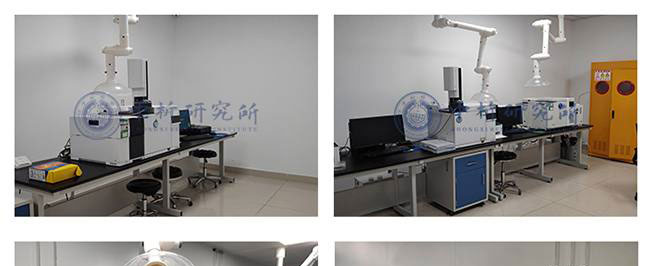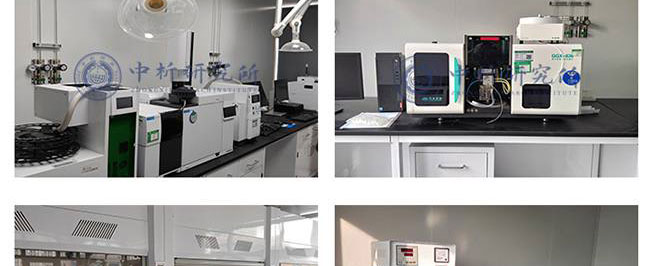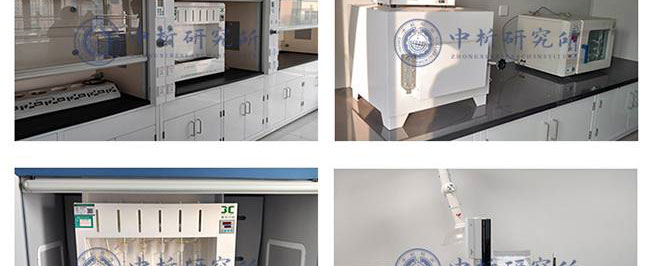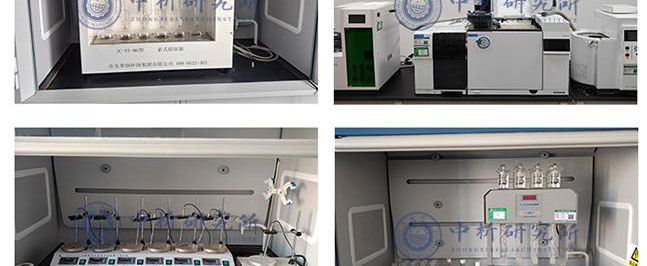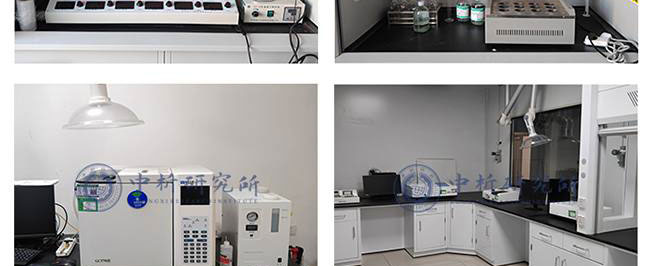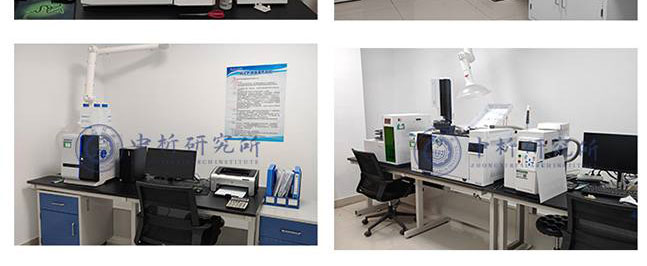國家標準 GB/T 14093.5-2009 機械產品環境技術要求 干熱環境
【適用范圍】本部分規定了干熱環境用機械產品的防護類型、環境條件、技術要求、試驗方法、驗收規則以及標志、包裝、運輸和貯存等要求。rn本部分適用于按GB/T 4797.1-2005規定的干熱氣候區使用的一般用途的機械產品。產品的大類包括農機具、內燃機、工程機械、起重運輸機械、重型機械、石化通用機械、電工產品、儀器儀表、機床工具和通用零部件等。
【中國標準分類】 A21 基礎標準
【國際標準分類】 19.020-試驗條件和規程綜合
國家標準 GB/T 14093.5-1997 熱環境 根據WBGT指數(濕球黑球溫度)對作業人員熱負荷的評價
【適用范圍】 本標準規定了熱作業環境和熱作業人員熱負荷的評價方法。 本標準適用于評價8h工作日的平均熱負荷,不適用于評價小于1h工作的熱負荷。
【中國標準分類】 A25 基礎標準
【國際標準分類】 13.180-人類工效學
國家標準 GB/T 18048-2008 熱環境人類工效學 代謝率的測定
【適用范圍】本標準規定了在工作氣候環境下的各種代謝率測定方法。rn本標準適用于工作行為檢測,特定工作、體育運動的體能消耗估算,以及特定活動的總能耗估算等。rn注:本標準使用的估算、表格及其他資料均建立在以下標準人的基礎上:n—男性:30歲,體重70kg,身高1.75m(體表面積為1.8m2);n—女性:30歲,體重60kg,身高1.70m(體表面積為1.6m2)。rn如果用戶所面對的是特殊人群,比如包括兒童、老年人或殘疾人等群體,應做出適當的修正。
【中國標準分類】 A25 基礎標準
【國際標準分類】 13.180-人類工效學
國家標準 GB/T 18049-2017 熱環境的人類工效學 通過計算PMV和PPD指數與局部熱舒適準則對熱舒適進行分析測定與解釋
【適用范圍】本標準給出了中等熱環境中的人的整體熱感覺和不舒適程度(熱不滿意度)的預測方法。標準給出認為可接受的整體熱舒適和局部不舒適的環境條件,通過計算PMV和PPD指數,以及局部熱舒適準則對熱舒適性進行分析測定和解釋。
本標準適用于處在理想熱舒適的室內環境中的健康男性和女性,但在設計新環境和評價已有環境時,熱舒適稍微有些偏差。本標準雖然是針對室內工作環境制定的,但也同樣適用于其他環境。當考慮有身體殘障等有特殊要求的人群時,可配ISO/TS14415:2005的4.2使用本標準。當考慮非空調環境時,還需要考慮民族、地區和地理差異。
【中國標準分類】 A25 基礎標準
【國際標準分類】 13.180-人類工效學
國家標準 GB/T 18049-2000 中等熱環境 PMV和PPD指數的測定及熱舒適條件的規定
【適用范圍】 本標準規定了預測處于中等熱環境中的人對熱的感覺和不舒適程度的方法,并規定了可接受的熱舒適條件。 n 本標準適用于健康男性和女性。rn 本標準適用于室內工作環境的設計或對現有室內工作環境進行評價。
【中國標準分類】 A25 基礎標準
【國際標準分類】 13.180-人類工效學
國家標準 GB/T 18977-2003 熱環境人類工效學 使用主觀判定量表評價熱環境的影響
【適用范圍】本標準適用于判定量表(熱感覺量表、熱舒適量表、熱偏好量表、可接受性陳述表以及耐受量表)的編制和使用,這些判定量表可以提供可靠的和可比較的有關主觀熱舒適或熱應激方面的數據。
【中國標準分類】 A25 基礎標準
【國際標準分類】 13.180-人類工效學
國家標準 GB/T 32221-2015 真空技術 航天器用真空熱環境模擬試驗設備 通用技術條件
【適用范圍】本標準規定了航天器用真空熱環境模擬試驗設備技術要求、檢驗規則、標識、貯存、包裝和運輸。rn本標準適用于工作壓力1x10^(-2)Pa~1x10^(-4)Pa真空熱環境模擬試驗設備(以下簡稱設備)。
【中國標準分類】 J78 通用機械與設備
【國際標準分類】 23.160-真空技術
國家標準 GB/T 40233-2021 熱環境的人類工效學 物理量測量儀器
【適用范圍】本標準規定了熱環境物理量測量儀器的荃本特征及測量方法。
本標準是為了標準化記錄測試數據,從而定義了一些指標.這些定義不涉及舒適性或熱應激的具體指標。
本標準適用于:
a)環境物理最測最儀器制造及設備使用規范;
b)雙方就測員這些物理員擬定相關合同。
本標準適用于炎熱、溫和、舒適或寒冷環境對人體的影響。
【中國標準分類】 A25 基礎標準
【國際標準分類】 13.180-人類工效學
國家標準 GB/T 40261.2-2021 熱環境的人類工效學 交通工具內熱環境檢測 第2部分:用受試者評價熱舒適性
【適用范圍】GB/T 40261的本部分給出了用受試者評價交通工具內熱舒適性的指導準則,并規定了一種標準實驗方法。本部分確立了熱環境檢測和評價的一般原則,不局限于任何特定的交通工具。本部分規定的方法根據能否為人們提供熱舒適性,確定交通工具在關注條件下的性能,用于交通工具的開發和評價。
本部分適用于各種類型的交通工具,包括轎車、公共汽車、卡車、越野車、火車、飛機、輪船、潛艇、吊車的駕駛艙以及類似空間。適用于人們被封閉于交通工具內以及暴露在外部環境時的情況。對于暴露在外界條件下的人,例如自行車和摩托車騎手、敞篷車駕駛員以及無駕駛艙的叉車操作人員等,車輛速度和天氣會主導人休的反應。本部分的檢測原則也適用。
本部分適用于其應用不影響車輛的安全運行條件下的交通工具乘客和操作人員。
本部分確立了熱舒適性檢測和評價的原則,包括測試方法和受試者實驗的使用。同時,本部分還提供了檢測熱環境舒適性的主觀方法。
本部分屬于基本工效學標準,有助于特定交通T具和產品相關標準的開發。
【中國標準分類】 A25 基礎標準
【國際標準分類】 13.180-人類工效學
國家標準 GB/T 40288-2021 熱環境的人類工效學 術語和符號
【適用范圍】本標準對熱環境的人類工效學領域的相關物理量給出了定義,并列出相應的符號和單位。
本標準的主要目的是:
——給出熱環境人類工效學中物理量定義和符號;
——為編寫標準或其他有關熱環境人類工效學的出版物提供術語和符號參考。
注:本標準允許在新的標準或現行標準的修訂過程中正確地加入術語和符號。
【中國標準分類】 A25 基礎標準
【國際標準分類】 13.180-人類工效學
行業標準 JGJ 286-2013 城市居住區熱環境設計標準
【適用范圍】本標準適用于城市居住區詳細規劃階段的熱環境設計。 根據原建設部《關于印發<2007年工程建設標準規范制訂、修訂計劃>的通知》(建標[2007]125號)的要求,標準編制組經廣泛調查研究,認真總結實踐經驗,參考有關國際標準和國外先進標準,并在廣泛征求意見的基礎上,編制本標準。rn本標準的主要技術內容是:1.總則;2.術語和符號;3.基本規定;4.規定性設計;5.評價性設計。rn本標準中以黑體字標志的條文為強制性條文,必須嚴格執行。
【中國標準分類】 P33 工業與民用建筑工程
【國際標準分類】 91.040.30-住宅建筑物
行業標準 JGJ/T 347-2014 建筑熱環境測試方法標準
【適用范圍】本標準適用于民用建筑與工業輔助性建筑的室內熱環境測試。
【中國標準分類】 P31 工業與民用建筑工程
【國際標準分類】 91.040.01-建筑物綜合
行業標準 NB/T 51008-2012 礦井熱環境測定與評價方法
【適用范圍】本標準規定了礦井熱環境測定與評價的術語定義、測定內容、范圍、精度及評價指標、熱害等級。 本標準適用于高溫礦井的熱環境測定與評價。
【中國標準分類】 D09 礦業綜合
【國際標準分類】 13.100-職業安全、工業衛生
地方標準 DB32/ 478-2001 江蘇省民用建筑熱環境與節能設計標準
【適用范圍】本標準規定了我省范圍內居住建筑室內熱環境標準、能耗標準及節能設計原則和要求。 本標準適用于我省新建、擴建和改建的居住建筑的節能設計、其他民用建筑和公共建筑的節能設計亦可參照執行。
【中國標準分類】 P45 工業與民用建筑工程
【國際標準分類】 91.140.10-中央供熱系統
地方標準 CNS 15875-3-2016 熱環境之人因工程-人體接觸表面之反應評鑒方法-第3部:冷表面
【適用范圍】本標準說明冷傷害風險評鑒之方法及徒手/裸露手指碰觸冷表面時之其他不利效應。本標準提供人體工學數據以建立冷固體表面之溫度限值。所建立之數值可用于發展需要表面溫度限值之特殊標準。本標準之數據適用于所有冷表面導致急性效應(例:疼痛、麻痹及凍瘡)風險之領域。本數據并不限于手,亦適用于一般人體皮膚。本標準適用于成人(女性及男性)之健康皮膚。應用延伸之考慮參照附錄B。本標準說明冷傷害風險評鑒之方法及徒手/裸露手指碰觸冷表面時之其他不利效應。本標準提供人體工學數據以建立冷固體表面之溫度限值。所建立之數值可用于發展需要表面溫度限值之特殊標準。本標準之數據適用于所有冷表面導致急性效應(例:疼痛、麻痹及凍瘡)風險之領域。本數據并不限于手,亦適用于一般人體皮膚。本標準適用于成人(女性及男性)之健康皮膚。應用延伸之考慮參照附錄B。
【中國標準分類】 A25 基礎標準
【國際標準分類】 13.180-人類工效學
地方標準 CNS 15875-1-2016 熱環境之人因工程-人體接觸表面之反應評鑒方法-第1部:熱表面
【適用范圍】本標準提供當人體皮膚接觸熱固體表面時發生燙傷之溫度閾值。本標準亦說明當人體未受保護之皮膚可能或會碰觸熱表面時,評鑒其燙傷風險之方法。本標準亦提供須指定熱表面溫度限值之指引,惟未訂定表面溫度限值。備考1. 此等溫度限值可規定于特定產品標準中或法規中,以預防人體接觸產品之熱表面時遭受燙傷。本標準針對接觸時間0.5 s以上者。本標準適用于接觸期間其表面溫度幾乎維持不變(參照4.1)。本標準不適用與熱表面接觸之大面積皮膚(約全身皮膚之10 %以上)。亦不適用于接觸頭部皮膚超過10 %或接觸會導致臉部重要部位燙傷。備考2. 在某些情況中,接觸熱表面之結果,對個人會較嚴重,例如下列情況。- 通風不良下產生之燙傷。- 大面積燙傷(大于全身皮膚之10 %)會因體液流失而損害循環。- 頭或全身大面積受熱,即使未燙傷,會導致難以承受之熱應變(heat strain)。本標準適用于所有物體之熱表面,例:設備、產品、建物及自然物等,以下簡稱產品。本標準適用于在任何環境(例:工作場合及家中)使用之產品。本標準適用于會被健康成人、兒童、年長者及身障者所碰觸之產品熱表面。本標準不提供不適或疼痛防護之數據。
【中國標準分類】 A25 基礎標準
【國際標準分類】 13.180-人類工效學
地方標準 CNS 15875-2-2016 熱環境之人因工程-人體接觸表面之反應評鑒方法-第2部:適溫表面
【適用范圍】本標準提供人體部位接觸適溫(約10 ℃至40 ℃)固體表面之熱感知及不適程度的預測原理及方法。包含手、足及坐在地板上之接觸熱感知。
【中國標準分類】 A25 基礎標準
【國際標準分類】 13.180-人類工效學
地方標準 DB50/ 5009-1999 重慶市民用建筑熱環境與節能設計標準(居住建筑部分)
【適用范圍】重慶市地方標準;------重慶市新建住宅熱環境質量指標,住宅采暖空調除濕能耗指標,達到建筑熱環境質量指標和節能要求的主要技術參數、措施。
【中國標準分類】 A25;A21 工業與民用建筑工程
【國際標準分類】 13.180-人類工效學
國際標準 ISO 7243-1989 熱環境根據濕球玻璃溫度計指示數對操作人員熱影響的估算
【適用范圍】Gives a method
which can easily be used in an industrial environment for evaluating the stresses on a individual. It applies to the evaluation of the mean effect of heat on man during a period representative of his activity but it does not apply to very short periods
nor to zones of comfort.
【中國標準分類】 A25;A21 基礎標準
【國際標準分類】 13.100-職業安全、工業衛生
國際標準 ISO 7726-1998 熱環境的人機工程學.物理量的測量儀表
【適用范圍】This International Standard specifies the minimum characteristics of instruments for measuring physical quantities characterizing an environment as well as the methods for measuring the physical quantities of this environment.nIt does not aim to define an overall index of comfort or thermal stress but simply to standardize the process of recording information leading to the determination of such indices. Other International Standards give details of the methods making use of the information obtained in accordance with this standard.nThis International Standard is used as a reference when establishingna) specifications for manufacturers and users of instruments for measuring the physical quantities of the environment;nb) a written contract between two parties for the measurement of these quantities.nIt applies to the influence of hot
moderate
comfortable or cold environments on people.
【中國標準分類】 N51;Z30 物質成分分析儀器與環境監測儀器
【國際標準分類】 13.180-人類工效學
國際標準 ISO 7730-2005 中等熱環境--對熱舒適度預測平均通過(PMV)和預測不滿意百分率(PPD)的測定及條件規范
【適用范圍】This International Standard presents methods for predicting the general thermal sensation and degree ofndiscomfort (thermal dissatisfaction) of people exposed to moderate thermal environments. It enables thenanalytical determination and interpretation of thermal comfort using calculation of PMV (predicted mean vote)nand PPD (predicted percentage of dissatisfied) and local thermal comfort criteria
giving the environmentalnconditions considered acceptable for general thermal comfort as well as those representing local discomfort. Itnis applicable to healthy men and women exposed to indoor environments where thermal comfort is desirable
nbut where moderate deviations from thermal comfort occur
in the design of new environments or thenassessment of existing ones. Although developed specifically for the work environment
it is applicable tonother kinds of environment as well. It is intended to be used with reference to ISO/TS 14415:2005
4.2
whennconsidering persons with special requirements
such as those with physical disabilities. Ethnic
national orngeographical differences need also to be taken into account when considering non-conditioned spaces.
【中國標準分類】 C52;Z30 衛生
【國際標準分類】 13.080-土質、土壤學
國際標準 ISO 7730-1994 熱環境人類工效學--代謝熱量的測定
【適用范圍】The metabolic rate
as a conversion of chemical into mechanical and thermal energy
measures the energetic cost of muscular load and gives a numerical index of activity. Metabolic rate is an important determinant of the comfort or the strain resulting from exposure to a thermal environment. In particular
in hot climates
the high levels of metabolic heat production associated with muscular work aggravate heat stress
as large amounts of heat need to be dissipated
mostly by sweat evaporation.nThis International Standard specifies different methods for the determination of metabolic rate in the context of ergonomics of the climatic working environment. It can also be used for other applications — for example
the assessment of working practices
the energetic cost of specific jobs or sport activities
the total cost of an activity
etc.nThe estimations
tables and other data included in this International Standard concern an "average" individual:n— a man 30 years old weighing 70 kg and 1
75 m tall (body surface area 1
8 m);n— a woman 30 years old weighing 60 kg and 1
70 m tall (body surface area 1
6 m).nUsers should make appropriate corrections when they are dealing with special populations including children
aged persons
people with physical disabilities
etc.
【中國標準分類】 A25 基礎標準
【國際標準分類】 13.180-人類工效學
國際標準 ISO 9920-2007 熱環境的人類工效學--服裝整體隔熱和抗水蒸汽的評定
【適用范圍】This International Standard specifies methods for estimating the thermal characteristics (resistance to dry heatnloss and evaporative heat loss) in steady-state conditions for a clothing ensemble based on values for knownngarments
ensembles and textiles. It examines the influence of body movement and air penetration on thenthermal insulation and water vapour resistance.nThis International Standard does notn- deal with other effects of clothing
such as adsorption of water
buffering or tactile comfort
n- take into account the influence of rain and snow on the thermal characteristics
n- consider special protective clothing (water-cooled suits
ventilated suits
heated clothing)
orn- deal with the separate insulation on different parts of the body and discomfort due to the asymmetry of anclothing ensemble.
【中國標準分類】 A25 基礎標準
【國際標準分類】 13.180-人類工效學
國際標準 ISO 9920-1995 熱環境的人機工程學--熱環境效應的主觀判斷評價
【適用范圍】This document presents principles and examples of practical application for the construction of appropriate subjective scales for use in the assessment and evaluation of the physical environment. It does not standardize particular scales.
It considers scales of perception
comfort
preference
acceptability
expression form and tolerance
and environmental components such as thermal
visual
air quality
acoustic and vibration.
It does not consider other scales such as:
— scales related to the effects of the environment on the ability to read displays or signs
on manual performance or on psychological conditions such as mood
etc.;
— scales related to pain or scales related to stimuli that can lead to injury.
This document does not present principles of surveys (see Note) or questionnaire design. However
the scales that are developed using this document can be incorporated into surveys or questionnaires.
NOTE Environmental surveys are described in ISO 28802. ISO 28802 includes scales that are complementary to
and based upon
the principles of scale construction that are described in this document.
【中國標準分類】 A25 基礎標準
【國際標準分類】 13.180-人類工效學
國際標準 ISO 10551-1995 熱環境的人機工程學--熱環境效應的主觀判斷評價.
【適用范圍】Covers the construction and use of judgement scales for use in providing reliable and comparative data on the subjective aspects of thermal comfort or thermal stress.
【中國標準分類】 A25 基礎標準
【國際標準分類】 13.180-人類工效學
國際標準 ISO 11399-1995 熱環境人類工效學 相關國際標準的原則與應用
【適用范圍】Purpose is to specify information which will allow the correct
effective and practical use of International Standards concerned with the ergonomics of the thermal environment. Describes the underlying principles concerning the ergonomics of the thermal environment.
【中國標準分類】 A25 基礎標準
【國際標準分類】 13.180-人類工效學
國際標準 ISO 14505-2-2006/COR.1-2007 熱環境的人類工效學--車輛內熱環境的檢測--第2部分:等效溫度的測定
【適用范圍】This part of ISO 14505 provides guidelines for the assessment of the thermal conditions inside a vehiclencompartment. It can also be applied to other confined spaces with asymmetric climatic conditions. It isnprimarily intended for assessment of thermal conditions
when deviations from thermal neutrality are relativelynsmall. Appropriate methodology as given in this part of ISO 14505 can be chosen for inclusion in specificnperformance standards for testing of HVAC-systems for vehicles and similar confined spaces.
【中國標準分類】 A25 基礎標準
【國際標準分類】 13.180-人類工效學
國際標準 ISO 15743-2008 熱環境的人類工效學--寒冷工作場所--風險檢測和管理
【適用范圍】This International Standard presents a strategy and practical tools for assessing and managing cold risk in thenworkplace
and includesn-- models and methods for cold risk assessment and management
n-- a checklist for identifying cold-related problems at work
n a model
method and questionnaire intended for use by occupational health care professionals inn identifying those individuals with symptoms that increase their cold sensitivity and
with the aid of suchn identification
offering optimal guidance and instructions for individual cold protection
n-- guidelines on how to apply thermal standards and other validated scientific methods when assessingn cold-related risks
andn-- a practical example from cold work.nThis International Standard supports good occupational health and safety (OHS). It is applicable to bothnindoor and outdoor work situations -- indoor work includes work done inside vehicles
outdoor work bothninland and offshore work -- but is not applicable to diving situations or other types of work performednunderwater.
【中國標準分類】 A25 基礎標準
【國際標準分類】 13.180-人類工效學
國際標準 ISO/TS 13732-2-2001 熱環境工效學-人類接觸表面反應的檢測方法-第二部分:適度溫度下人類接觸表面
【適用范圍】This part of ISO/TS 13732 presents principles and methods for predicting the thermal sensation and degree of discomfort for people where parts of the body are in contact with solid surfaces at moderate surface temperatures (approximately 10 ℃ to 40 ℃).nIt deals with the thermal sensation for contacts of the hand
foot and for the sitting position on the ftoor.
【中國標準分類】 A25 基礎標準
【國際標準分類】 13.180-人類工效學
國際標準 ISO/TS 14415-2005 熱環境人類工程學-國際標準對帶特別要求人員的應用
【適用范圍】This Technical Specification provides background information on the thermal responses and needs of groups of persons with special requirements so that International Standards concerned with the assessment of the thermal environment can be appropriately applied for their benefit. It is applicable to the use of the International Standards listed in Clause 2 and includesn— a description of the range and variety of responses and adaptations to thermal environments of people with special requirements
and the consequences for measuring and evaluating those environments
n— the application of the PMV/PPD index when considering persons with special requirements and thermal comfort in moderate environments
n— the application of International Standards for the assessment of hot and cold thermal environments when such environments are occupied by people with special requirements
andn— brief descriptions of thermal disabilities and their relevant thermal response characteristics with detailed information from available knowledge on several of the most important of these (see Annex A).
【中國標準分類】 A25 基礎標準
【國際標準分類】 13.180-人類工效學
國際標準 ISO/TS 14505-1-2007 熱環境的人類工效學--車輛中的熱環境檢測--第1部分:熱應力檢測的原則和方法
【適用范圍】This part of ISO 14505 gives guidelines for the assessment of thermal stress inside vehicles used for land
nsea and air operation. It offers information about the assessment of hot
cold as well as moderate thermalnenvironments by referring to different methods
as specified in International Standards
and specifying thenconstraints and necessary adjustments needed for the special case of vehicle climate assessment.
【中國標準分類】 Y54 基礎標準
【國際標準分類】 91.140.30-通風和空調系統
國外標準 ASTM E2320-2004 熱環境和室內空氣條件用辦公設備適用性分類
【適用范圍】
Each Occupant Requirement Scale (see Figs. 1-5) in this classification provides a means to set the required level of serviceability of a building or facility for one topic of serviceability and to compare that level against any level of any other occupant
or of any building or facility.
Each Facility Rating Scale (see Figs. 1-5) in this classification provides a means to estimate the level of serviceability of a building or facility for one topic of serviceability and to compare that level against any level of requirement of any occupant
or of any other building or facility.
This classification can be used for comparing how well different buildings or facilities meet a particular requirement for serviceability. It is applicable despite differences such as location
structure
mechanical systems
age
and building shape.
This classification can be used to estimate the amount of variance of serviceability from target or from requirement
for a single office facility
or within a group of office facilities.
This classification can be used to estimate the following:
4.5.1 Serviceability of an existing facility for uses other than its present use.
4.5.2 Serviceability (potential) of a facility that has been planned but not yet built.
4.5.3 Serviceability (potential) of a facility for which remodeling has been planned.
Use of this classification does not result in building evaluation or diagnosis. Building evaluation or diagnosis generally requires a special expertise in building engineering or technology
and the use of instruments
tools
or measurements.
This classification applies only to facilities that are building constructions
or part thereof. (While classification may be useful in rating the serviceability of facilities that are not building constructions
such facilities are outside the scope of this classification. See discussion under definition 3.1.1.)
This classification is not intended for
and is not suitable for
use for regulatory purposes nor for fire hazard assessment nor for fire risk assessment.
1.1 This classification contains pairs of scales for classifying an aspect of the serviceability of an office facility
that is
the capability of an office facility to meet certain possible requirements for suitable thermal environment and indoor air conditions.
1.2 Within this aspect of serviceability
each pair of scales
shown in 5
is for classifying one topic of serviceability. Each paragraph in an Occupant Requirement Scale (see ) summarizes one level of requirement for serviceability on that topic
which occupants might require. The matching paragraph in the Facility Rating Scale (see ) is a translation of the requirement into a description of certain features of a facility which
taken in combination
indicate that the facility is likely to meet that level of required serviceability.
1.3 The paragraphs in the Facility Rating Scale (see ) are indicative and not comprehensive. They are for quick scanning to estimate approximately
quickly
and economically how well a facility is likely to meet the needs of one or another type of occupant group over time. The paragraphs are not for measuring
knowing
or evaluating how an office facility is performing.
1.4 This classification can be used to estimate the level of serviceability of an existing facility. It can also be used to estimate the serviceability of a facility that has been planned but not yet built
such as one for which schematic or preliminary drawings and outline specifications have been prepared.
1.5 This standard indicates what would cause a facility to be rated (classified) at a certain level of serviceabi......
【中國標準分類】 Y54 文教、體育、娛樂用品
【國際標準分類】 91.140.30-通風和空調系統
國外標準 ASTM E2320-2004(2012) 熱環境和室內空氣條件用辦公設備適用性分類
【適用范圍】1.1 This classification contains pairs of scales for classifying an aspect of the serviceability of an office facility
that is
the capability of an office facility to meet certain possible requirements for suitable thermal environment and indoor air conditions. 1.2 Within this aspect of serviceability
each pair of scales
shown in Figs. 1-5
is for classifying one topic of serviceability. Each paragraph in an Occupant Requirement Scale (see Figs. 1-5) summarizes one level of requirement for serviceability on that topic
which occupants might require. The matching paragraph in the Facility Rating Scale (see Figs. 1-5) is a translation of the requirement into a description of certain features of a facility which
taken in combination
indicate that the facility is likely to meet that level of required serviceability. 1.3 The paragraphs in the Facility Rating Scale (see Figs. 1-5) are indicative and not comprehensive. They are for quick scanning to estimate approximately
quickly
and economically how well a facility is likely to meet the needs of one or another type of occupant group over time. The paragraphs are not for measuring
knowing
or evaluating how an office facility is performing. 1.4 This classification can be used to estimate the level of serviceability of an existing facility. It can also be used to estimate the serviceability of a facility that has been planned but not yet built
such as one for which schematic or preliminary drawings and outline specifications have been prepared. 1.5 This standard indicates what would cause a facility to be rated (classified) at a certain level of serviceability but does not state how to conduct a serviceability rating or how to assign a serviceability score. That information is found in Practice E1334. The scales in this classification are complimentary to and compatible with Practice E1334. Each requires the other. 1.6 This standard indicates what would cause a requirement to be classified as being at a specific
【中國標準分類】 Y54 文教、體育、娛樂用品
【國際標準分類】 91.140.30-通風和空調系統
4、雙方將就檢測項目進行詳細溝通,并簽署保密協議,以保證客戶信息的保密性。在此基礎上,我們將進行測試試驗.














